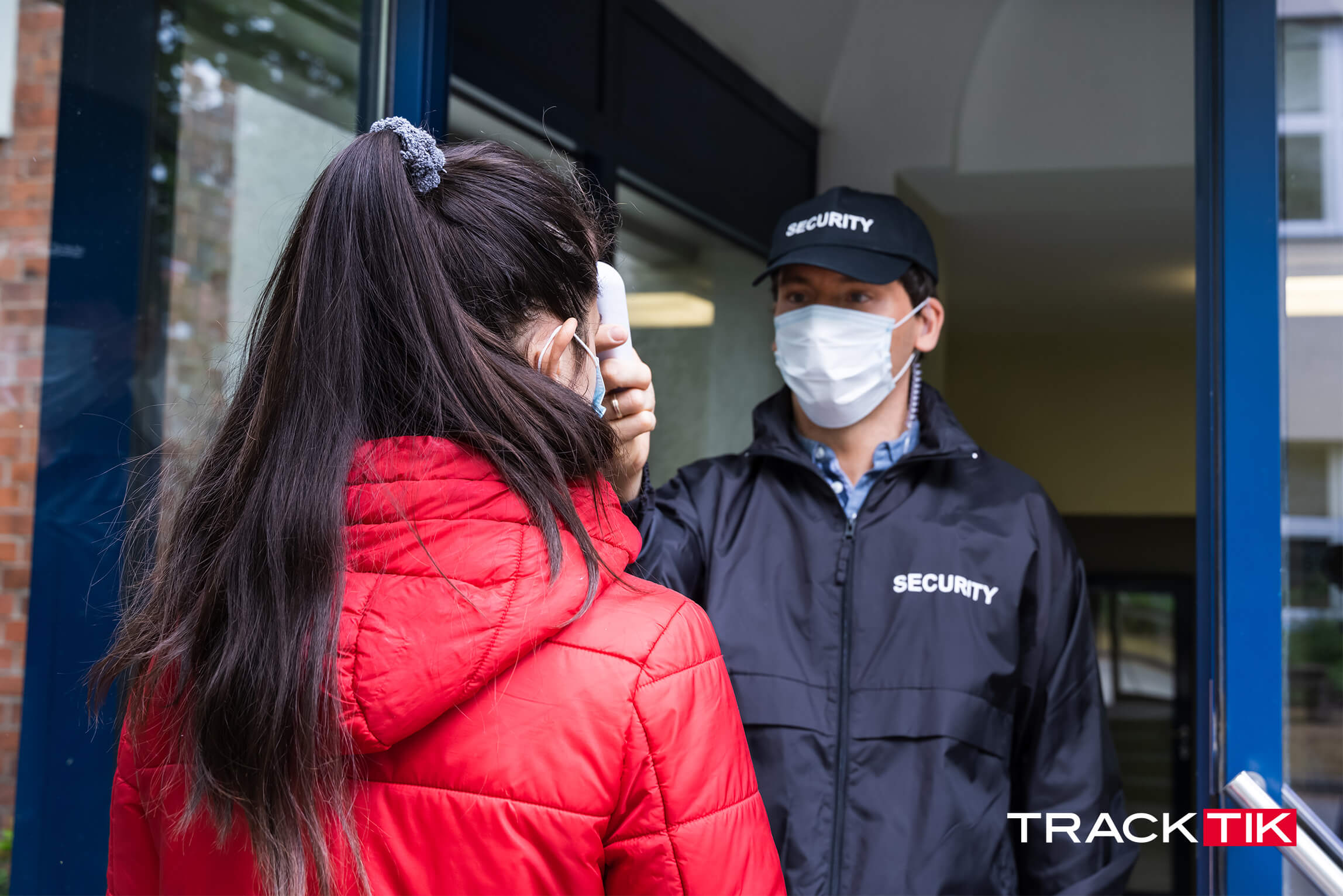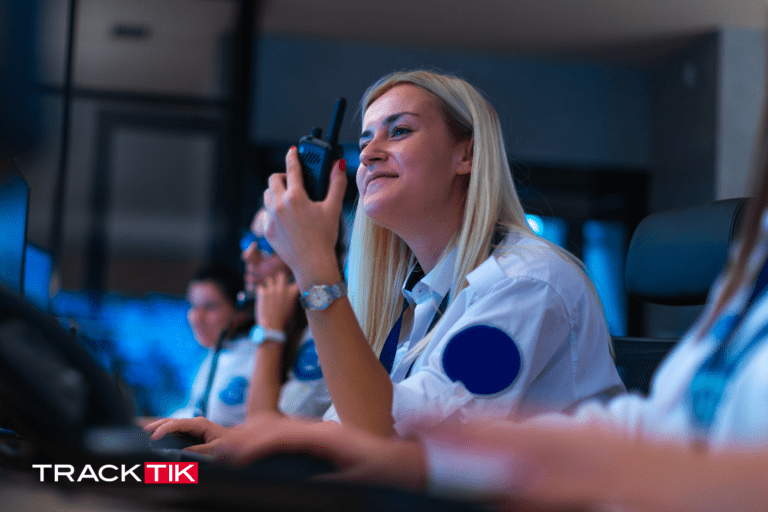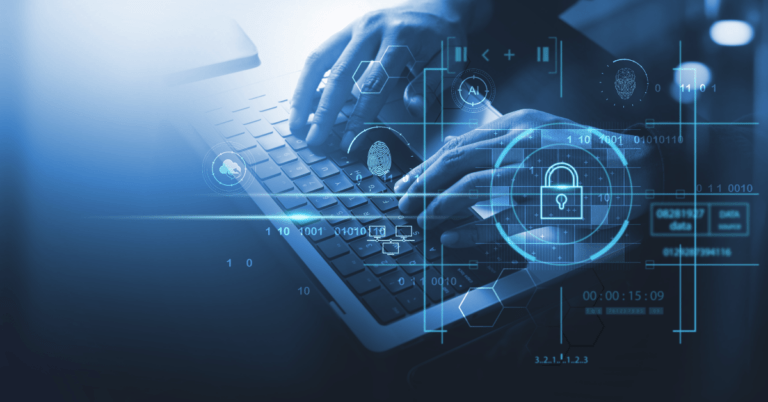The pandemic has taken a terrible toll on the physical security industry. Some security officers are forced to self-isolate from their families, often on pull-out sofas in basements and garages after a day on the front lines interacting with the general public. They’ve endured both verbal and physical abuse as they enforce government-sponsored Covid-19 rules and mask mandates while at the same time getting no help with priority access to vaccinations.
Security agencies and hospitals in both North America and the United Kingdom have been slow to recognize that routine tasks for security officers who interact with a potentially infected population carry more risk than they did pre-pandemic. Since the start of the pandemic, security officers have not been appropriately classified as frontline workers or prioritized for vaccines the way medical staff has. Across the state of California, security officers say that over the past year, their jobs have become increasingly dangerous.
Although some hospitals, government agencies, and immigration centers do vaccinate officers working in their facilities, the facilities organize it and not because it is a government initiative. In Canada, many provinces, including Quebec, British Columbia, Manitoba, Saskatchewan, and the Atlantic provinces, still have not provided expedited vaccinations to security officers. The attitude is similar in other countries as well, and the lack of urgency in prioritizing vaccines to security officers on the front lines is beginning to show.
Statistics for most countries are not widely available. Still, in the UK, according to the Office for National Statistics, male security officers die from the disease with some of the highest rates of any job. From March to December 2020, 100 deaths were recorded per 100,000 workers.
In the United States, at least 90 security officers in California alone died from Covid-19 between March and December 2020, according to a study compiled by researchers from the University of California, San Francisco (UCSF). However, it is unclear whether these deaths are the direct result of workplace exposure. However, given the amount of time security officers spend with the general public in high traffic areas, transmission while on the job is likely the cause of some of these fatalities.
In a recent story published by Canada’s National Post newspaper, Paul Katerenchuk, president of Synergy Protection Group Inc., a Toronto-based security firm, had this to say about the lack of recognition faced by security officers. “Being on the front lines, a lot of people talk about the clerks at the grocery stores, delivery, medical, police — absolutely every one of them is an unsung hero, there is no question. But security guards get overlooked. We are essentially at the front of the front line — before you get into the hospital, into that store, into that bank, nine times out of 10, there is security there, playing the role of enforcement, crowd control, health and safety compliance, and engagement with the crowds.”
24/7 Security and Covert Deliveries
In what can only be described as a terrible blessing in disguise, the distribution and roll-out of Covid-19 vaccines have provided many new employment opportunities for security officers in the healthcare, retail, and facility management sectors. Protecting the world’s limited vaccine supply requires round-the-clock security, armed escorts, covert deliveries, surveillance cameras, alarms, temperature gauges, and much more.
In Windsor, Ontario, a town on the south bank of the Detroit River directly across from Detroit, Michigan, the St. Clair College SportsPlex mass vaccination site, like sites all over the country, installed additional security cameras and ensured that every exterior door was alarmed and tied into an alarm system. They also added 24/7 off-duty police and 24/7 security on site.
With reports of a potential surge in crime, Interpol issued a global alert to its 194 member countries warning them to prepare for organized crime networks targeting Covid-19 vaccines, both physically and online. Jürgen Stock, INTERPOL Secretary-General, said, “As governments are preparing to roll out vaccines, criminal organizations are planning to infiltrate or disrupt supply chains.”
Opportunity Knocks
- Transportation and Distribution
Transporting vaccines safely and securely to distribution sites like stadiums and arenas, office buildings, and pharmacies are much like the transportation of other valuable goods and supplies that many security companies already handle (including the transport of refrigerated supplies). - Managing and Safeguarding Supply
Additional security may be required to safeguard vaccine supplies and ensure that they are correctly stored before distribution to prevent potential theft, loss, or spoliation of what can be a very limited supply in many areas. - Maintaining Order at Distribution Sites
Security companies may be required to assist healthcare centers, medical clinics, and pharmacies in maintaining an orderly process in distribution line-ups or administering vaccines to avoid potential confrontations and keep the peace. - Protecting Frontline Workers
As vaccine distribution grows, hospitals and medical centers may need to protect frontline workers as they provide vaccines, especially at temporary sites like mobile clinics, community centers, and schools without built-in security or access control.
Advanced security technology, beefed-up security, robots, temperature-sensing cameras, alarms, and increased protection are all playing a key role in keeping vaccine shipments and supply safe and secure not only here in North America but all over the world. The same protection should be provided to the security officers who continue to stand at the front of the line 15 months on.
About TrackTik
TrackTik was founded in 2013 and quickly established itself as a market leader with the mission to build better software so its clients can run smarter businesses. TrackTik’s AI-driven technology enables security organizations to connect frontline staff, back office management, and their clients to drive improved operational efficiency and data insights. TrackTik helps security professionals make automated, data-driven decisions with its cloud-based seamless approach to system connectivity. Headquartered in Montreal, Canada, with employees in the United Kingdom and the Netherlands, TrackTik offers four integrated suites of tools – Security Operations for Guarding, Back Office Management, Mobile Patrol and Dispatch, and Business Intelligence & Reporting Analytics, to help security service companies follow the progression of guards, reduce manual tasks, lower costs, and demonstrate value.



